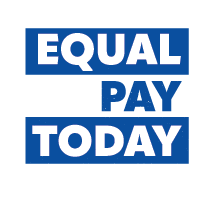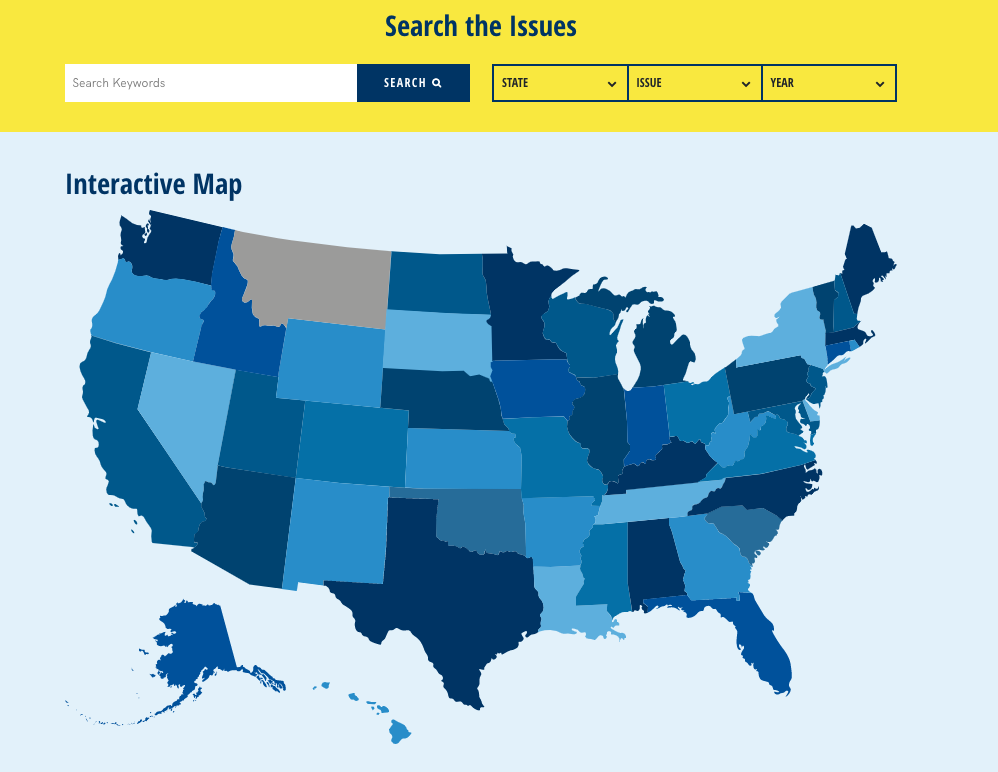It is vital to be informed about issues of equal pay and the economic security of workers across the country. Use this questionnaire to ask questions of candidates and policymakers, to thank or encourage them to support positions that ensure pay equity for workers, and to stay informed about key pay equity issues that are important to you.
Use our voter questionnaire to learn more from your candidates and elected officials in order to engage with them about the issues.
Equal pay in your state.
Learn which equal pay laws have been enacted in your state by using this policy map, courtesy of Equal Rights Advocates.
Ready to take action? Here are a few things you can do today.
Share this page with friends and family to make sure they are aware of the pay equity issues that impact them!
On the right, select the social media platform you’d like to post to, then hit share! You can also click here to access the toolkit.Register to Vote. Click here to check your voter registration status.
Learn about the Equal Pay Today Policy Agenda and help us enact our priorities, like the Paycheck Fairness Act or the Be Heard Act, by contacting your Member of Congress or state representatives.
Join the Equal Rights Advocates Action Team and you’ll receive weekly emails with quick and effective actions you can take to support gender justice.
As you consider what is important to you, here is some information to learn more about the wage justice issues that impact you and your families:
Ensure Equal Pay
Protect yourself, protect your families, protect your pay.
At both the federal and state level, legislators have pursued legislation to improve equal pay laws.
Provide Pay Transparency and Anti-Retaliation Protections
Eliminate gender bias with posted salary ranges.
Only some states and cities require employers to post salary ranges for jobs to workers and candidates, leaving many applicants and workers without the information they need to identify pay disparities and negotiate higher compensation. Other than for federal workers, there is no federal law requiring this for private sector workers.
Stop the practice of carrying forward pay discrimination from a prior job into a new one.
Employers often ask job applicants what they made in their last job to set pay at a new job. This practice perpetuates gender and race-based pay gaps and harms workers whose prior salary was less than it should have been because of past discrimination.
Ban retaliation for talking about how much you make with coworkers.
Employers often prohibit workers from discussing or disclosing pay which hides pay disparities. While there are protections for federal workers, neither federal law nor most state laws adequately protect all workers from retaliation if they disclose their own salary to coworkers, discuss compensation at work, or ask questions about what they are paid relative to others.
Provide Workplace Protections for Caregivers
Stop penalizing mothers and other caregivers.
The lifetime earnings of mothers and other family caregivers decrease when they are pushed out of jobs for any period of time because of discrimination, lack of workplace accommodations, or a lack of job protected and paid family and medical or sick leave. National paid family and medical leave and paid sick days are necessary so no one has to pick between keeping a job or the health of themselves and their families.
Ensure a Living Wage for All Workers
No worker should live in poverty.
Many states follow federal minimum wage law, which barely allows workers to stay afloat. For restaurant workers, federal law allows employers to pay tipped workers a subminimum wage of just $2.13 per hour before tips and only eight states and the District of Columbia require employers to pay tipped workers the full minimum wage, before tips. This forces many tipped workers, the majority of whom are women, to tolerate customer abuse to make ends meet with tips.
Worse still, workers with disabilities can make even less per hour, sometimes even pennies on the dollar. The federal minimum wage has been $7.25 per hour since 2009, despite a significantly increased cost of living during that period, and only 9 states and D.C. have a minimum wage of $15 per hour, which should be considered the bare minimum.
Stop Workplace Harassment
No worker should have to suffer from workplace harassment to earn a living.
Workplace harassment pushes women out of the workforce and limits their economic opportunities. Current law does not adequately protect all workers and leaves in place things like the tipped minimum wage, which exposes workers, mostly women of color, to potentially hostile environments to make ends meet. Since #MeToo went viral, several states have introduced and passed bills strengthening protections against harassment at work, but more work must be done at the federal level to address workplace discrimination and harassment.
Equal Pay Today, a project of Equal Rights Advocates, is a coalition of approximately 50 state and federal nonprofit organizations working together to achieve wage justice. Equal Rights Advocates and the Equal Pay Today coalition do not support or oppose political parties or candidates. This voter questionnaire is being shared for education purposes only.


